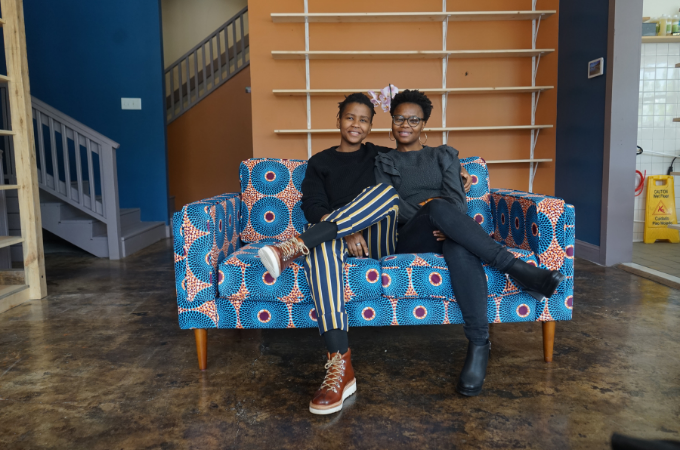
Two South African residents in the United States are delighting book lovers with a shop full of books by black authors paired with delicious coffee and pastries. Rofhiwa Book Café was launched this year by the South African power duo Boitumelo Makhubele, who is the founder and Naledi Yaziyo, who is curator. Boitumelo is a Computer Science student at North Carolina A&T and known for their work in community organizing and activism. They have done a lot to foster safe spaces for LGBTQIA+ people of color. Naledi is a Doctoral Student in Cultural Anthropology at Duke University. Naledi’s writing has appeared in Africa is A Country, The Daily Vox and The Mail & Guardian. Together they’ve established this beautiful space for the celebration of black literatures in all their global diversity.
Rofhiwa Book Café is located in Durham, North Carolina. The space is tastefully designed and cozy. Durham residents go there for books and coffee but also to enjoy book events, art exhibitions, and more. When we first learned about the book shop, we just had to know more. Here is the chat we had via email with Boitumelo and Naledi about the inspiration behind the project.
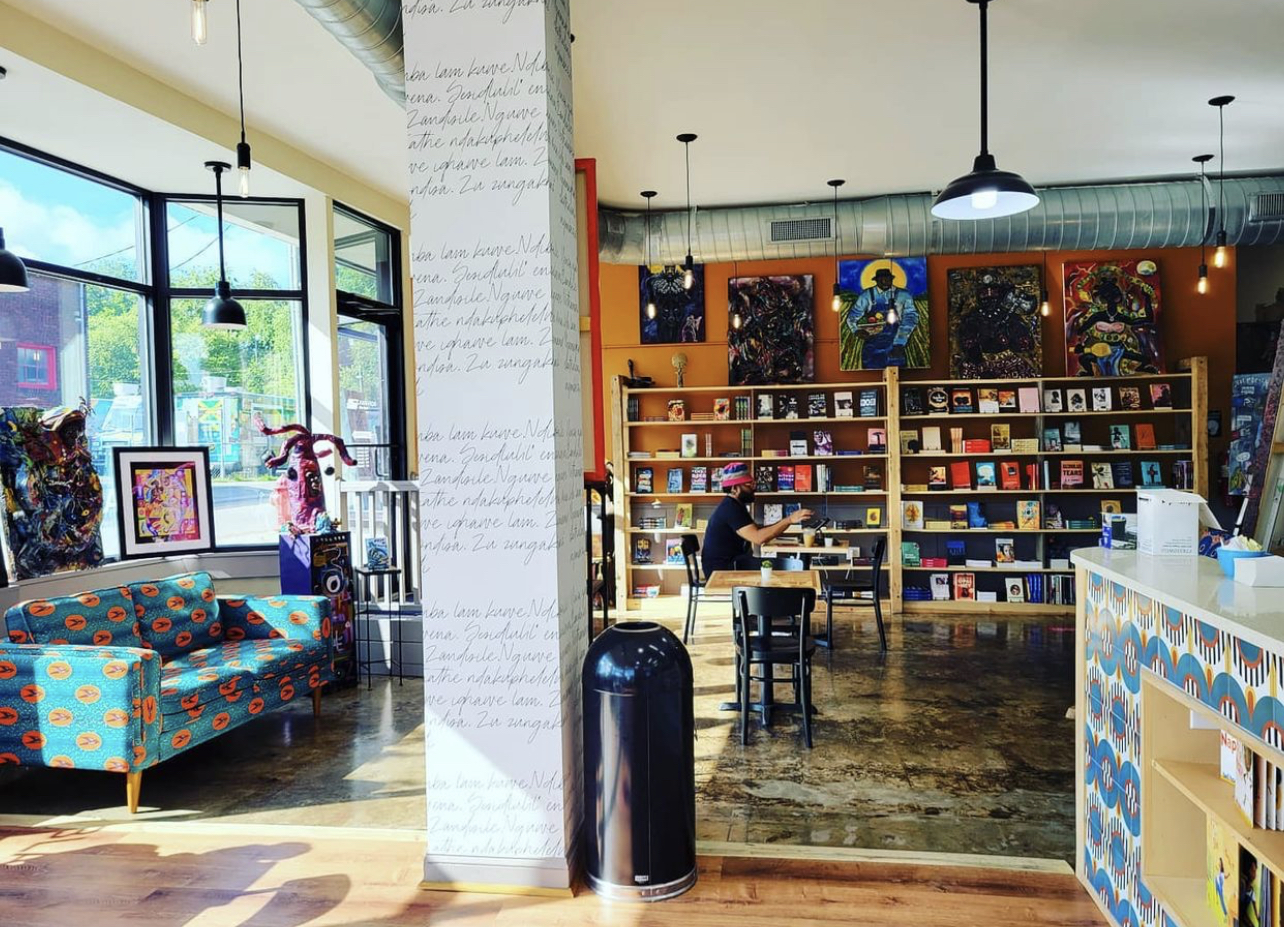
Brittle Paper
Congrats Naledi and Boitumelo on opening Rofhiwa Book Café. Tell us about yourselves.
Naledi and Boitumelo
We are both South African. Boitumelo is from Johannesburg. Naledi is from Cape Town. But we met here in Durham, North Carolina in a night club in 2019. Tumi has lived in the US for a little while, moved here as a teenager with their mother and sister from Johannesburg. Naledi is currently in a PhD program at Duke University.
Brittle Paper
What is a Book Café and how did the idea come about?
Naledi and Boitumelo
Our book café combines a bookstore and a coffee shop without compromising on either. We take our coffee program just as seriously as we take our book selection. Our coffee is sourced from two Black owned coffee roasters: Black and White Coffee (based in North Carolina) and Three Keys (based in Texas). Our books showcase Black writers the world over. We approach both these aspects of Rofhiwa with the same attentiveness, the same careful curatorial intent.
Brittle Paper
Did you face any challenges opening up a café in the midst of a pandemic?
Naledi and Boitumelo
Our storefront has been open since May 15. We obsessed about pandemic readiness in the months before we opened, listening to and watching how other businesses around us were negotiating the pandemic and weighing different strategies based on what other booksellers had been doing. For instance, some booksellers offered curbside service at the height of the pandemic or offered browsing sessions by appointment. Others remained open but with limited capacity. We weighed all these options so that by the time we were ready to open, COVID-19 safety was just part of our accessibility and safety plans. So, we have been agile as infection rates rise and fall because we’re always prepared to pivot when needed.
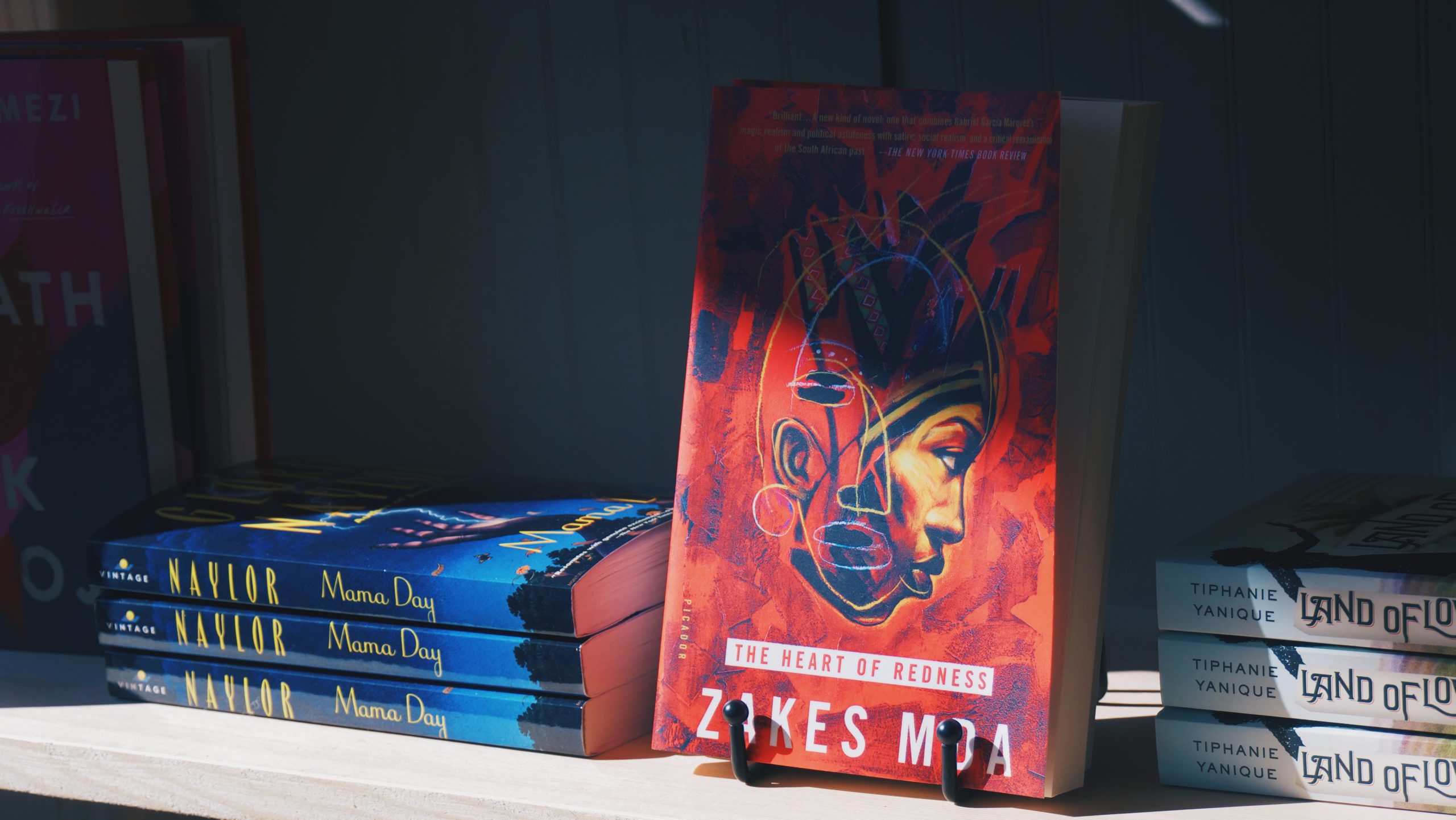
Brittle Paper
What has been most memorable about the community’s reception of the café?
Naledi and Boitumelo
We ran a Kickstarter to raise the money we needed to renovate our space – a beautiful building in a historic location in Durham, which is adjacent to what was once the independent Black district of Hayti. The location bears significance in the history of Black enterprise in the area. Our Kickstarter campaign raised over $41000. What was special about it was that in the end we had 1032 backers and most of them made “small donations” and very few big donations. Somehow that means more because it means people reached deep into their pockets and gave what they could. We saw people share the campaign with their friends and family and carry it forward to places we just would not have reached on our own.
And people continue to support and surprise us even now long after the Kickstarter. We think of Rofhiwa as an aesthetic project. We wanted to make a beautiful thing, and we did. Every element of our space is delicately put together – from tile to couch to bookshelf (which is handmade with wood inherited from the old chemistry labs at a local HBCU). People respond to our intention; they bring us flowers and little ornate things to adorn the place.
Recently, we worked with local artist, Shambo Medina to put together an exhibition that would showcase his life’s work. Shambo worked alongside Naledi who curated book selections to respond to each of his pieces. It was incredible. It completely shifted our perception of what we can do with the space. It inspired us to seek more opportunities to be in partnership with the many artists and creatives around us.
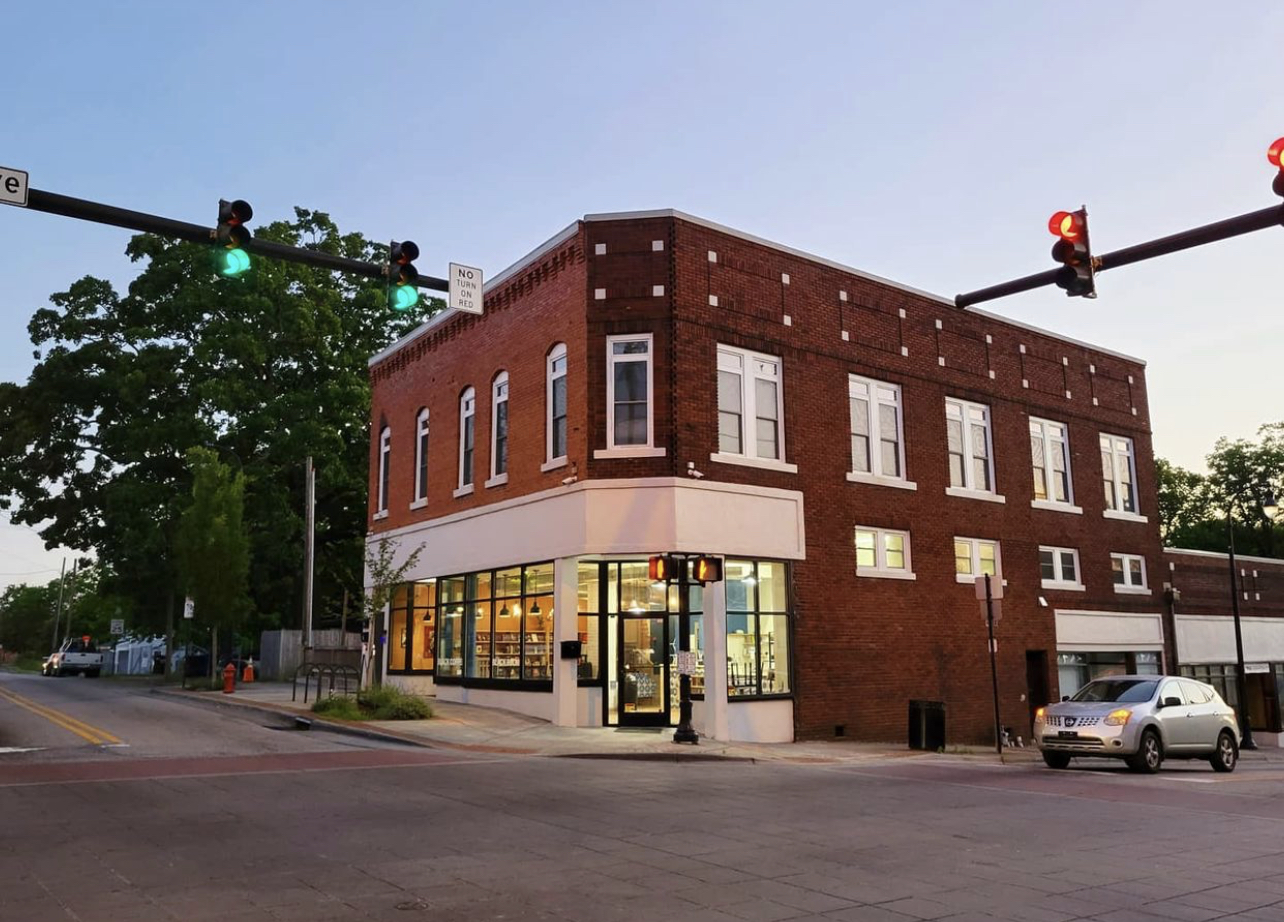
Brittle Paper
How do you see Rofhiwa Book Café as a black and queer owned business impacting the Durham community and beyond?
Naledi and Boitumelo
When we talk about Rofhiwa we often use the word “proliferate” – that we are interested in the things that Rofhiwa might proliferate, the possibilities that it can open for others just by the fact of its existing where it is. And so, we are quite happy to open up aspects of the project to others to experiment and play and make their mark – for their work at Rofhiwa to be something they can build on and carry forward. We also dream about small interventions Rofhiwa might enable in our particular industry. We look forward to stretching the capacity of existing infrastructures and perhaps even getting creative ourselves in working to achieve more sustainable channels for getting literatures from various presses around the world and into the hands of our readership.
Brittle Paper
What is it about this particular moment that makes showcasing the wealth of global black literatures so important to you both?
Naledi and Boitumelo
You know, Rofhiwa wasn’t made for this moment. Tumi had been incubating the project since 2014 and actively searching for a location in 2018. When we met in 2019, things fell together because Naledi sort of understood the vision and was able to carry it forward. It’s serendipitous that we should be here in this moment, yes. Rofhiwa matters because it works against the grain of the logic of the “anti-racist reading list,” which seems to color how people think about Black literature at the moment. Certainly, those lists matter too, in their own way, but they cannot be the only way to access Black literature.
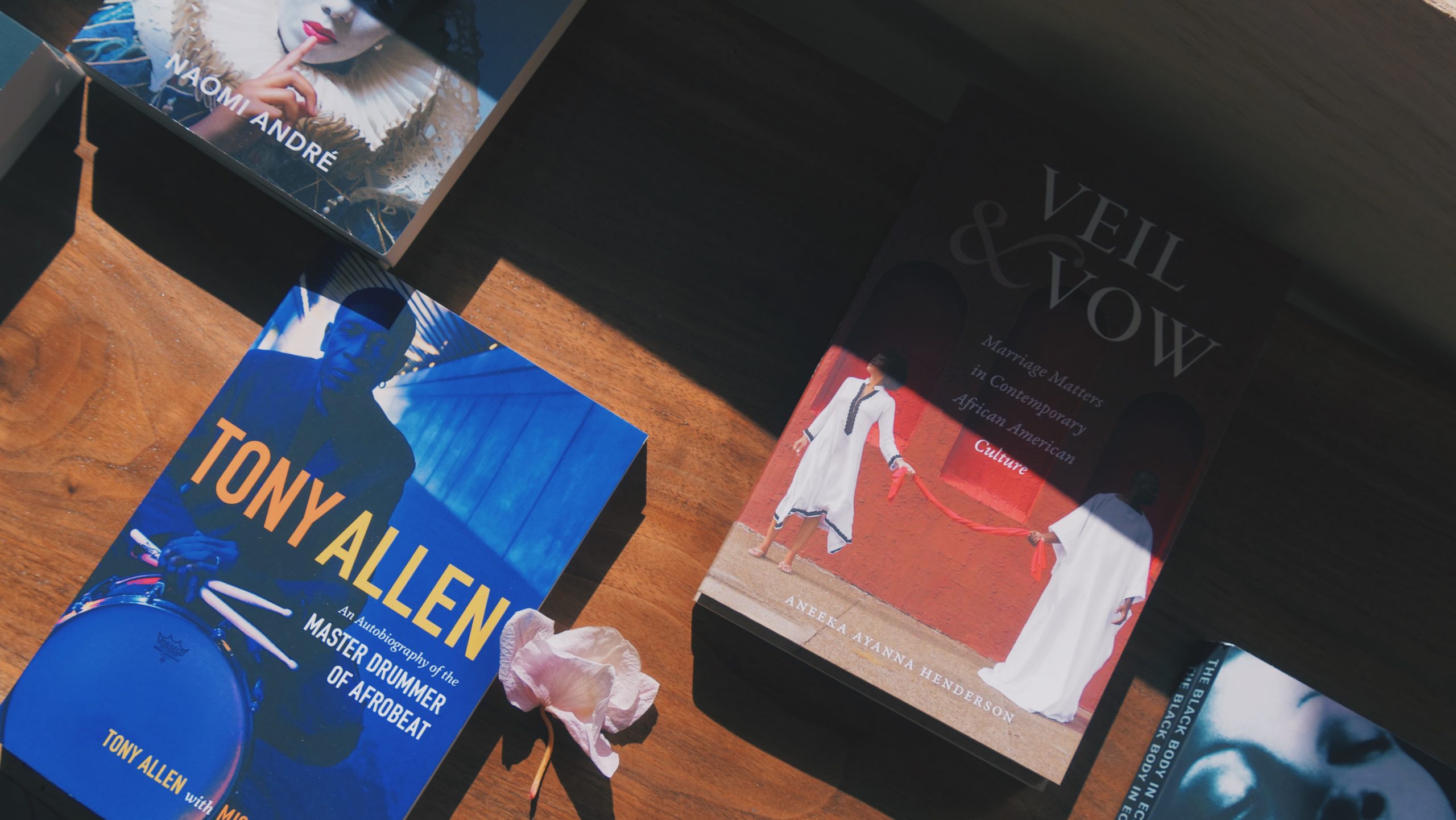
Brittle Paper
Rofhiwabooks.com is impressive. Tells us about the collection.
Naledi and Boitumelo
This is the mission we set ourselves when we first began working towards Rofhiwa. This is the claim of Rofhiwa:
“Rofhiwa strives to reflect the expansiveness of the black imagination. We value books as repositories for collective knowledge. We endeavor to foster a spirit of heightened engagement by curating a living, active, and affective collection of books that capture the dexterity of black writers across classic and contemporary works.”
This means never being content with just the publisher’s frontlist. It means researching and reading and asking over and over “what do Black people read over there? What have they read?” We’re not always able to get the books that we would like to have in store, but we try to answer that question as best as we can and then look at what we are able to get and try to make something that somehow coheres around specific subjects.
For instance, Naledi has been very intentional about putting together a strong crime selection, driven by a question she came across on Twitter. Two questions, really: “Who are the black crime writers? What is crime writing?” The selection that comes out of the attempt to answer that question is dynamic because it has to ask what crime writing might look like in different parts of the Black world. It has to contend with the fact that the definition of crime is political and contextual – witchcraft could be a crime in certain places where Black writers write. How might our selection look if we considered a book that centers around a witchcraft accusation as crime writing? Or does witchcraft belong in fantasy/scifi, or is it always best understood in terms of religion? And how does that change our reading of the text? This is what you see on the website. This is the ethic that drives the curation. Being in the university helps because reading scholars of Black literature helps us enter these titles from multiple directions.
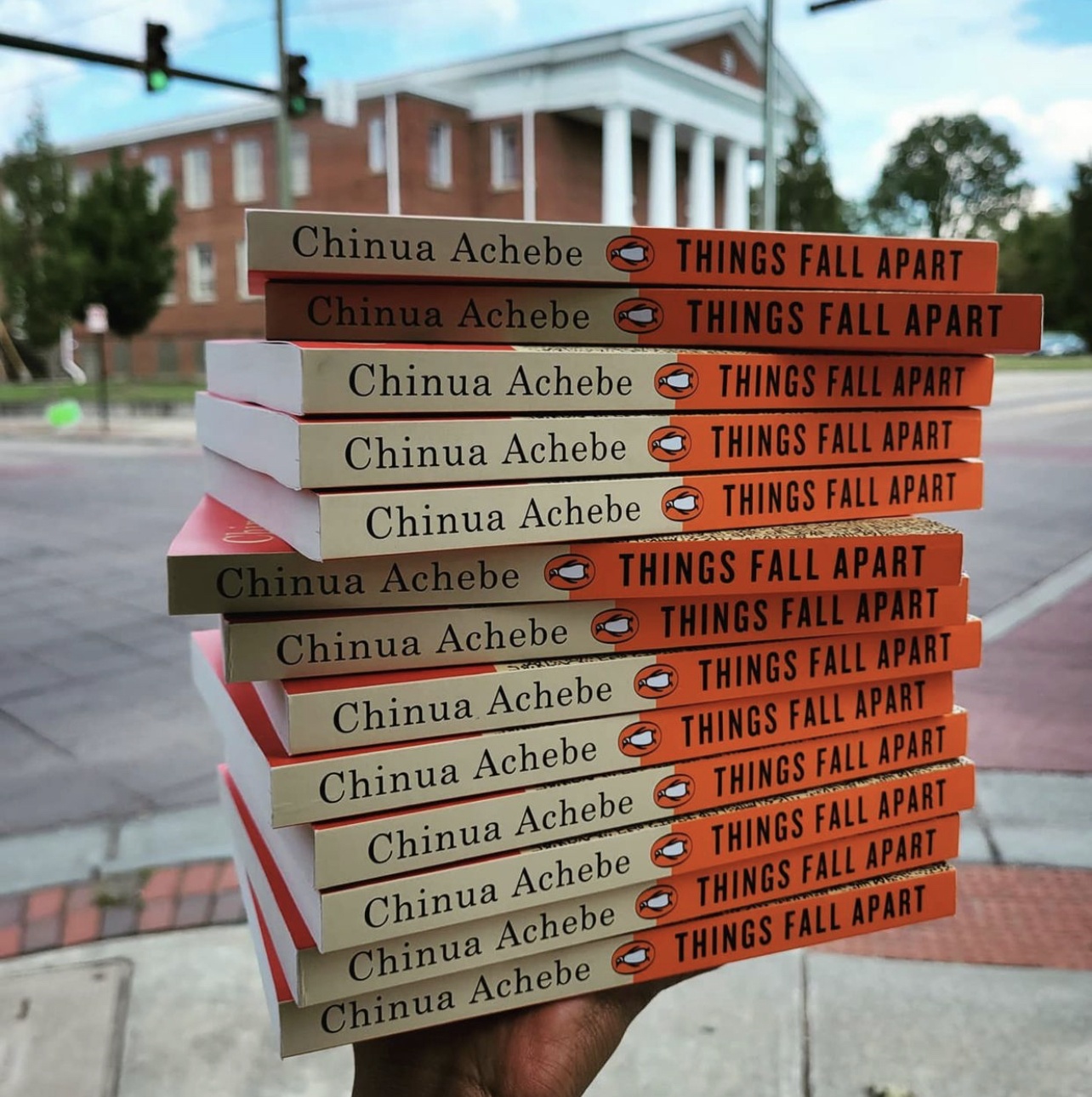
Brittle Paper
For those of us who are not in Durham, are there ways for us to take part in the Rofhiwa community?
Naledi and Boitumelo
Events. Join us online for our events. We have had some truly spectacular events these last few months. Professor Tsitsi Jaji and Dr. Stella Nyanzi had us all in tears as the shared a conversation was so tender and intimate, we almost forgot we were in a virtual event. Dr. Barbara Boswell and Dr. Shanna Benjamin reflected on their work as scholars who have dedicated their careers to honoring the intellectual legacies of Black women in South Africa and the US. The US launch of Sifiso Mzobe’s Young Blood was very special. We got to listen to Jacob Ross talk about his long career as a writer and publisher witnessed him reading Mzobe’s work with a careful and gentle eye. We hope to curate more of these conversations between writers across different parts of the Black world.
The launch of Dr. Lamar Jurelle Bruce’s How to Go Mad Without Losing Your Mind was also very special. It was the first academic book we launched, and it made us realize that this was a thing into which we really wanted to invest energy – to really celebrate the work that Black Scholars do with all the pomp and ceremony that is often reserved for trade publications that maybe have the benefit of a publishers’ marketing budget. We’ll be launching a few more academic titles over the next few months, so definitely be on the lookout for those.
Brittle Paper
Of all the things you have done thus far, what are you most proud of?
Naledi and Boitumelo
Is three too much? Three things really stand out for us. 1. Our first in-store book talk with Da’Shaun Harrison. That was just last week, and it was phenomenal. 2. Having helped introduce a book to the world, a book that went on to garner the title of “New York Times Best Seller.” We were the first stop on Kwame Mbalia’s virtual book tour to launch the YA anthology, Black Boy Joy. 3. Being prize winners in Pharell Williams’ inaugural Black Ambition Prize. That competition was a grueling year, a long affair. We came out on the other side of it inspired to keep stretching the dream that is Rofhiwa. That’s what we hope to keep doing…stretching, refining and bringing more people along to experiment with us.
Brittle Paper
Thanks Naledi and Boitumelo for chatting with us. You are both amazing. The Rofhiwa project as a whole is so affirming. We wish you the very best in the years ahead.
**********


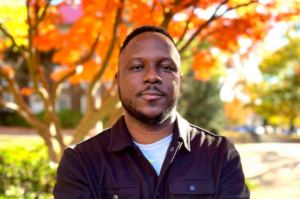
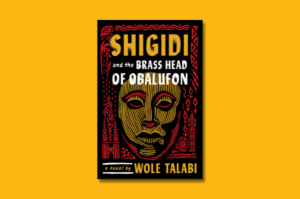





COMMENTS -
Reader Interactions